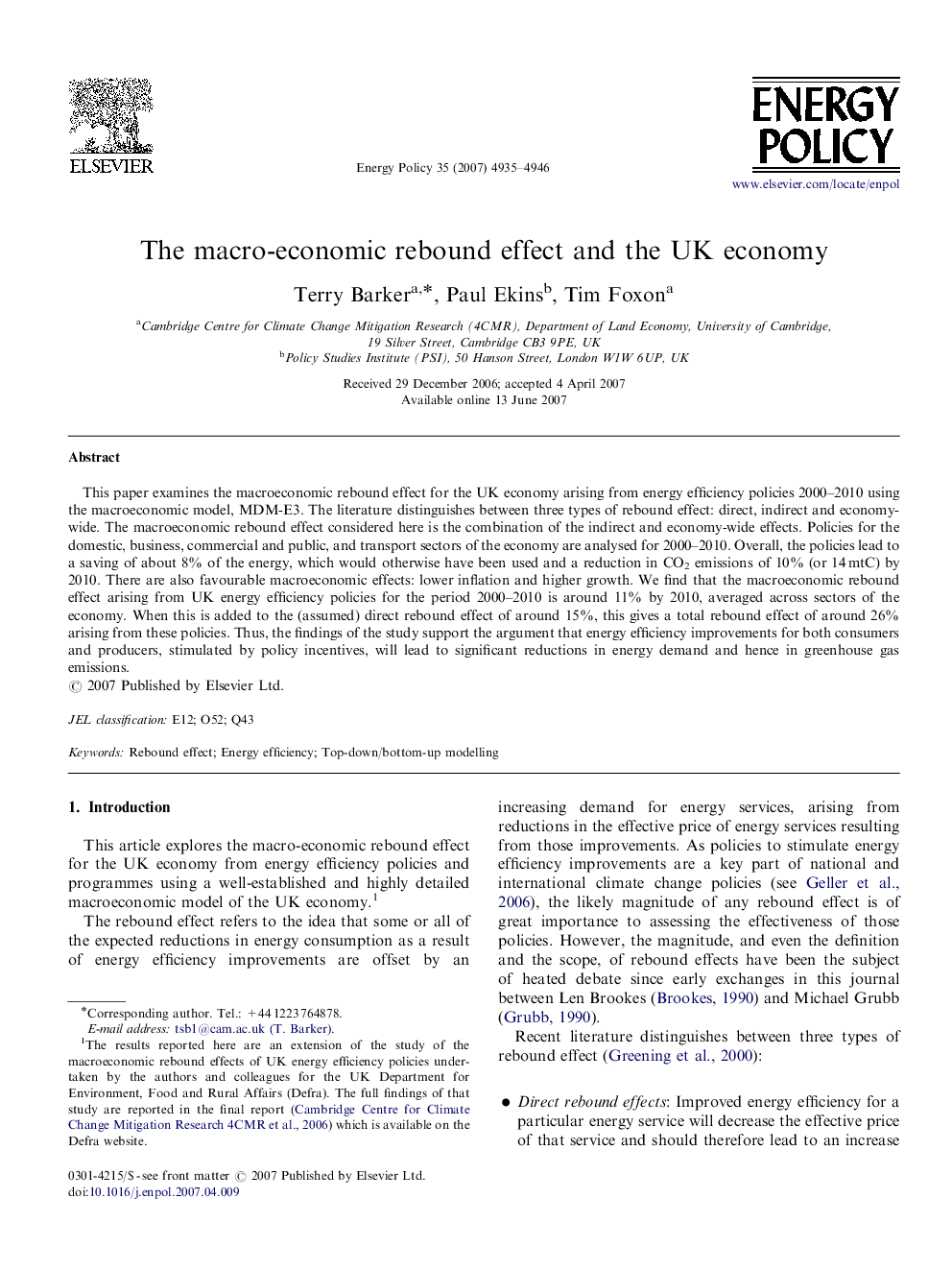| کد مقاله | کد نشریه | سال انتشار | مقاله انگلیسی | نسخه تمام متن |
|---|---|---|---|---|
| 997195 | 936341 | 2007 | 12 صفحه PDF | دانلود رایگان |

This paper examines the macroeconomic rebound effect for the UK economy arising from energy efficiency policies 2000–2010 using the macroeconomic model, MDM-E3. The literature distinguishes between three types of rebound effect: direct, indirect and economy-wide. The macroeconomic rebound effect considered here is the combination of the indirect and economy-wide effects. Policies for the domestic, business, commercial and public, and transport sectors of the economy are analysed for 2000–2010. Overall, the policies lead to a saving of about 8% of the energy, which would otherwise have been used and a reduction in CO2 emissions of 10% (or 14 mtC) by 2010. There are also favourable macroeconomic effects: lower inflation and higher growth. We find that the macroeconomic rebound effect arising from UK energy efficiency policies for the period 2000–2010 is around 11% by 2010, averaged across sectors of the economy. When this is added to the (assumed) direct rebound effect of around 15%, this gives a total rebound effect of around 26% arising from these policies. Thus, the findings of the study support the argument that energy efficiency improvements for both consumers and producers, stimulated by policy incentives, will lead to significant reductions in energy demand and hence in greenhouse gas emissions.
Journal: Energy Policy - Volume 35, Issue 10, October 2007, Pages 4935–4946